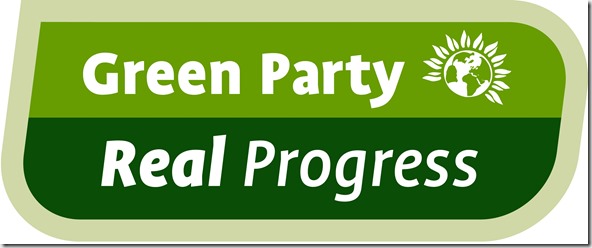(image: greenparty.ca)
Editors Notes: Interview from Nov 2010: Bill S-10 has since passed into law and Elizabeth May now sits in parliament as the first and only Green member)
An Interview with Elizabeth May
Cannabis Digest: Do you know anything about Hempology 101 in Victoria, or what we do as an organization?
Elizabeth May: No
We have been involved in the Victoria scene for 15 years. We are an advocacy group for hemp and marijuana—both sides of the cannabis coin. We have a club at the University [of Victoria] that teaches a weekly lecture series where we talk about different aspects surrounding cannabis. We also have a weekly club meeting to go along with that. I have brought you a picture of the weekly meeting at the University. We are also working on a rally for our 15th anniversary tomorrow night. Denise [Savoie] and Keith [Martin] have come down to speak at some previous ones, so if you would like to come down that would be really cool.
I would be very happy to do that. It’s kind of last minute but I think that should work.
*author’s note: Ms. May did indeed make the rally, and offered inspirational words to those attending.
We also work in conjunction with the Cannabis Buyers’ Clubs of Canada. We are one the oldest medical cannabis dispensaries in Canada. We have been providing medicine to people with permanent physical disabilities and diseases since 1996.
Is that Phillipe Lucas that had a lot to do with that?
No, that is the other club in town.
So there are actually two buyers’ clubs?
No, The VICS is the Vancouver Island Compassion Society and we are the Cannabis Buyers’ Club.
From the beginning (pre-1988) the Green Party has had a platform of legalization of what they consider soft drugs. That is drugs that they consider less harmful than alcohol or tobacco. What is your stance on legalization, and why has your party chosen to go this way.
It’s a policy based on research. It is based on a couple things. One is that prohibition is a failure. It directs law enforcement resources in the wrong place. People who feel insecure in their homes feel insecure in their homes, not because someone down the street might be smoking pot, but because they are concerned about break and enter or home invasions, or crimes of violence which generally are on the down turn. But there are pockets where people want to know they are safe in their homes. Police resources should go to those kind of crimes. And in our view [the solution] is not just decriminalization, but legalization of marijuana—putting it on the same status as tobacco or alcohol where you have programs for awareness. You don’t want people to be abusing any of those substances, because that represents both a health hazard and a danger to society from misuse of those products. So we have looked at it, and the World Health Organization has found in all of its studies, that marijuana is no more of a health hazard than alcohol or tobacco. The same thing has been found [in Canada]. The Senate of Canada did a study and came to the same conclusion. So there is solid research that prohibition doesn’t work. There is no reason to treat marijuana as an illegal substance; and by regulating, legalizing, taxing, then you have a much more sustainable ongoing access to marijuana for people for medicinal reason, for recreational reasons, but with the proper limits and all the same programs of awareness for “don’t drink and drive,” “don’t be under the influence of any kind of drug or artificial stimulant when you are behind the wheel.” So it’s a full package recognizing marijuana as legal which is different than promoting its use.
So [the federal Green Party] is very much behind the Tax and Regulate stance. Do you have a plan for taxation in place? What would you put those tax dollars towards?
Yes. They would be in the general revenues of Canada. The only specific piece that we had pulled out during the last platform was using some of the money for having the law enforcement agencies able to assess a driver to see if they are under the influence of marijuana. Right now breathalyzer tests for alcohol wouldn’t work on the same basis to make sure that some one isn’t behind the wheel when they shouldn’t be for any alcohol or marijuana influence. The other part would be for an awareness program to make sure the people know how to use marijuana, once it is legalized, in an appropriate fashion and basically moderation and awareness of where there are health risks—since the health risks associated with marijuana have never been found to be even as serious as for alcohol and cigarette over use. In the case of cigarette use, the cancer risk is at all kinds of different levels and we still allow cigarettes to be sold. Other than that, the rev- enues from taxation just go into the general revenues of the Government of Canada.
(image: greenparty.ca)
How would [the federal Green Party] plan to tax marijuana? A standard service tax?
No, the same way that cigarettes are taxed. There is a specific tax that goes on cigarettes above the HST.
Those tax dollars are funnelled back towards the health care system to account for the health care costs of tobacco use. There minimal cost to the health care system associated with cannabis use. In fact it may decrease the health care costs for people who are already ill.
The cigarette tax revenues aren’t particularly directed to health care, they are just in the general revenues of Canada, so would be marijuana taxes.
Why would you impose such a high sin tax? Cigarettes are astronomically taxed.
We do recognize that marijuana when misused can become a health risk. So there is evidence that it can become a health risk when misused. We want to make it accessible, and once it is legalized the price of marijuana will plummet. So the overall price we believe will end up being more reasonable that right now through prohibition. It does make sense to have the regulation and taxation and the education programs going hand in hand.
One model I have heard proposed is similar to how the wine industry is regulated, which would still allow for small scale production. In your version of legalization would people be allowed to grow for themselves?
Of course. If they are not commercializing it, then there is no reason to tax them. It’s just like having your own garden for tomatoes. A legal product is a legal product, so if it is not illegal to grow marijuana than obviously people can grow their own. This really cuts into organized crime. […] one of our main arguments is that since it grows easily, people can grow their own and you are actually cutting the heart of organized crime and you would eliminate grow-ops altogether, which do represent a threat. Grow operations can be disguised within residential neighbourhoods—no one knows they are there. They do represent increased crime risks for the families around them, because people engaged in intensive grow-ops are often part of an organized crime network, as opposed to people growing marijuana for their own use who would never be part of that.
You said that you would eliminate grow-ops. Would your legalization platform allow for growing in your house, or are you just talking about these massive scale grow-ops?
The massive grow-ops that are currently criminal activities and sometimes, I have heard from law enforcement officials, that rival gangs where someone will break down the door in what they think is a rival grow operation house and end up at the wrong door in some urban neighbourhood, and it is terrifying for people. By eliminating the criminality— and we are not going to regulate how much people want to grow in their own home unless they are doing like a farmer growing lots of food and selling it at markets—and then it would be regulated under the health regulations for production of any product that people are going to consume. We are not going to regulate to stop people from having grow-ops, but when I use the term “grow-op” what I am referring to is that fact that illegal grow-ops are a threat to a neighbourhood and they also tend to involve people who have become part of organized crime.
(image: greenparty.ca)
How many plants would you say that an organized criminal enterprise would grow in one house?
I wouldn’t know; I wouldn’t even guess. [There are] grow operations that you find in apartment buildings, in suburban neighbourhoods, and they are not for personal use. There is a way of judging that, the law enforcement officials who deal with grow-ops would be able to tell you how many [plants].
Would you say that six marijuana plants would constitute a criminal operation?
Well first of all, I don’t know the context of your question. We’re not making any, under our approach none of the plants, at any number, would become criminal. Currently?
Yes, I am talking about currently. If they were to find six plants in a house would that indicate an organized criminal enterprise operating?
I would not think so, no. But the point is that under the current legislation we have made even one plant illegal.
That’s true, and we are about to pass a new law, Bill S-10.
Which is completely outrageous. It would criminalize four plants in a house.
Six
Six, okay, I thought it was as few as four.
Originally it was as few as one [plant] back when this was C-26. This is the third time this bill has been introduced. First as C-26, then C-15, [now] it’s S-10. They are saying as few as six pot plants will guarantee a mandatory minimum sentence (MMS) because obviously if you have six plants in a house you are “organized crime.” That is the Harper government’s view. I know that the Green Party does not currently have a vote in parliament.
We would obviously vote against that.
Have you guys done an sort of advocacy against this bill?
I believe that we put out a press release against that at the time.
It has been introduced since May as S-10, I would love to see you put out another press release.
Sure, we put out a lot of press releases, and unfortunately not many of them get very much coverage.
They are all on your website?
Yeah. This is part of the ideology of the Harper government to be very punitive. They call it being tough on crime, but they want to spend 9 billion dollars building new prisons [while] the crime rate is falling. It looks like they want to criminalize behaviour that no one would consider criminal in order to have a way. And mandatory minimums and all these kinds of measures that aren’t actually sensible policies to protect public safety. They constitute an ideologically driven [with a] punitive approach that is intended to appeal to a base of their voters. It is bad policy in terms of any experts in public safety, approaches to gang crime, things that people are concerned about. These laws don’t actually help at all. They are basically pandering to what they think their base wants, but on a public policy basis it is bad policy.
(image: greenparty.ca)
Have you heard for Dr. Woods’ report “Effect of Drug Law Enforcemnet on Drug-Releated Violence: Evidence from a Scientific Review” by the Urban Health Research Initiative and the BC Centre for Excellence in HIV/AIDS? They found that as you increase the punitive effects, especially cannabis crimes but for all drug crimes, you have an increase in violence in the streets as well as gun violence. I am sure you have seen this effect in America where they impose some of the harshest drug penalties.
How would you propose we stop this bill [S-10] from passing in Canada? It came as close as royal assent in the last sitting of the parliament.
Well, at this point what you have to do is elect Greens. It’s pretty obvious. We are the only party with a sensible drug policy relating to marijuana, and if we are in the House of Commons we will be able to speak out against these bills when they start, and develop a platform so that the average Canadian has a party they can support. Now as it happens, this bill has already gone to the Senate. So it is going to be very hard to stop.
It started in the senate.
Yeah. Okay, it started in the senate.
They [Conservative government] proposed that this is a no cost bill and therefore you can introduce it in the Senate [and then have it approved by the House of Commons].
I don’t see, I don’t think, well in any case…
It is technically illegal.
It does have costs because the more people you throw in jail, the more cost it will have on society
They predict that imposing these new laws will cost about $2 billion a year to find the [cannabis] people, as well as to build and run prisons to keep them in. They are planning on introducing these MMS. When Stockwell Day got up and said “There is a lot of unreported crime,” some of the cannabis community was up in arms saying that the unreported crime is the cannabis crimes we are committing that they are planning on throwing us in jail for. Would you agree with this assumption?
No. There is no evidence to know what the unreported crimes in the Stats Can survey are. This is based on information from the long form census data collection across Canada. It could be inter-spousal violence. We don’t know what levels of crime is reported in the census forms. If someone says they are a victim of crime I would be very stunned to find that some reported to Stats Can that they were a victim of crime because someone in their neighbourhood was smoking marijuana. This is essentially a victimless crime. It is criminalized behaviour which does not create victims. My guess would be that the unreported crimes that Mr. Day talks about are most likely those crimes that occur between families, and people who know each other, in terms of unwanted sexual contact or violence. Those are the crimes that go unreported because there are all sorts of overlays of social and family issues. Now, again, I am guessing because those crimes went unreported, and Stats Can asked Canadians if they had experienced crime, and that was higher than the rate of crimes reported. And Stats Can also asked people if they had reported the crime they were now talking about and a very significant proportion said: “No, I did not bother to report it.” It seems unlikely to me that people are reporting to Stats Canada that they are experiencing cannabis crimes. Spending $9 billion dollars on new jails is completely inappropriate. Society has very large needs, and they are not for new jails—they are not for new fighter jets either. We need money for education, for the health care system, [and] there is no crime need for new prisons in Canada. However, the Harper government is imposing crowed prison conditions each time they impose one of these MMS or harsh, non-specific instructions to judges. Sentencing procedures should be specific to the crime and specific to the individual, and appropriate. And we favour restorative justice and a very different approach to the justice system than the Harper government.
On the CBC News website over the last two days (August 30,31) has been con- ducting a non-scientific webpoll ask- ing “Should Canada legalize marijuana?” When I left the office today the results were sitting at 94% yes (842 votes), 6% said no. A more scientific EKOS poll done last spring found that half of all voters said yes cannabis should be legalized including 59% of Green Party voters. Is there some- thing that the Green Party is going to do to rally the cannabis supporters behind them? Because if everyone in Canada who smokes pot voted Green, then we would have a lot of Green candidates.
In terms of our election strategies and plat- forms we are talking about democracy, and green communities and a green economy. Our marijuana policies for legalization are very much part of our platform, but we have no specific plans to campaign more on marijuana than on climate change, or the need for renew- able energy or on the need to protect our health care system. So it’s a package of policies that go together.
Hemp could be used for many of these environmentally detrimental industries that we have here in Canada. The timber industry as well as the oil industry could both be replaced with hemp using the seed for oil or the fiber for paper.
We do support moves to convert the tobacco fields of Southern Ontario, where people are very dependent on a particular crop. Hemp does do very well in replacing tobacco. By de- criminalizing, and in fact legalizing, mari- juana then that opens up the door to the other. As you say, there are a lot of products that you can have replacing forest fiber using hemp. There are medicinal uses of course. There are many uses for the seeds for the oil, for all sorts of things. You can also use hemp as a feed stock, for biofuels, without the use of chemical fertilizers and pesticides and all the things that increase the cost—so that gives us part of our platform. They are all very sensible things to do.
(image: greenparty.ca)
You are running your campaign in the Saanich/Gulf Islands riding. Although you have quite a conservative base here in Sydney, many of the gulf islands support their economies by growing outdoor marijuana in the summers. How do you think that these families and individuals will be affected if bill S-10 passes?
It’s not just a question of how it affects families, it’s just bad policy. It is not sensible to say that six plants in a home constitutes and criminal operation. So we are against it. Because I don’t have any data on people in the gulf islands being dependent on marijuana as an economic mainstay, my information is that there are a lot of people who—through small mixed organic farms, and through tourism, and through a whole range of economic activities—are maintaining themselves with- out being part of marijuana trade. I have no doubt that you have better information on this than I do, but since I do not have your information I am just going to have to say that it is not a sensible bill. It criminalizes people who’s activities are otherwise for their personal use, and even though possession of any amount of cannabis is technically illegal in this country we had been having—up until the Harper government—governments that were taking less and less punitive attitudes towards marijuana use. Statistically, this country has a much higher level of marijuana use across the country. It is widely accepted in all kinds of demographics, much more so than in the U.S., so having a government that wants to treat behaviour that had previously been treated by governments from Chrétien to that matter Joe Clark, all these governments had moved towards an attitude that separated criminal activity from low levels of possession and recreational use. I think the whole hypocrisy of that is a problem—to say that some kinds of marijuana use is a problem. But there is this little bit of grey zone where we know that people that are responsible members of society and not criminal, so even though the laws will criminalize them, we are going to in the application of the law treat certain people dif- ferently. There is a real problem with that; it is not clear. It left the door open for a government like Stephen Harper’s to say any use is criminal and we are going to put people in jail, and we are going to put people in jail for six pot plants. That comes from the Harper government and isn’t reflective of Canadian society and the general level of acceptance of use of marijuana.
Have you ever been to a cannabis dispensary?
No
Under current federal law it is legal for people who face permanent physical disabilities and diseases to consume cannabis to help with their medical problems. They can grow their own, they can have someone grow it for them, or they can purchase it from the federal government which grows it in a mine shaft. They have renewed the contract with Prairie Plant Systems for another 10 years, and many patients have found the quality of this cannabis to be very inferior.There have been many returns, and currently patients owe the government a couple million dollars for cannabis that they have refused to pay for because it was such low quality. Previous to the Health Canada program, and continuing to fill the void, buyers’ clubs, cannabis dispensaries, and compassion clubs, however you choose to call them, have been operating. There about two dozen of them across Canada and we have been experiencing some very significant legal problems over the last year. They raided every club in Quebec in one day, there has been a couple clubs in Toronto, one in Nunavat, as well as our bakery, have been raided. We would invite you to come down an learn how a cannabis dispensary works. We are technically an illegal operation, although, we have been sanctioned by our city.
I thank you. We support them; we know how it helps. I have friends with Crones’ Disease, I have friends with MS that have all found tremendous relief from the use of medicinal marijuana. Obviously our policies are so strong that I think you know I would be happy to come for a visit. I just haven’t been invited to a dispensary before.
How do you think your constituents can promote the message of legalization?
The clearest and strongest message is to ensure that I am elected as the MP for Sanniach/ Gulf Islands, and I will represent the con- cerns of the people of this riding, and also of all of Canada, raising issues that other politi- cians are afraid to raise and of course one of them will be the legalization of marijuana.
Thank you very much for your time and we wish you all the best.
(Article originally posted Nov 2010 in the CD archives here)











